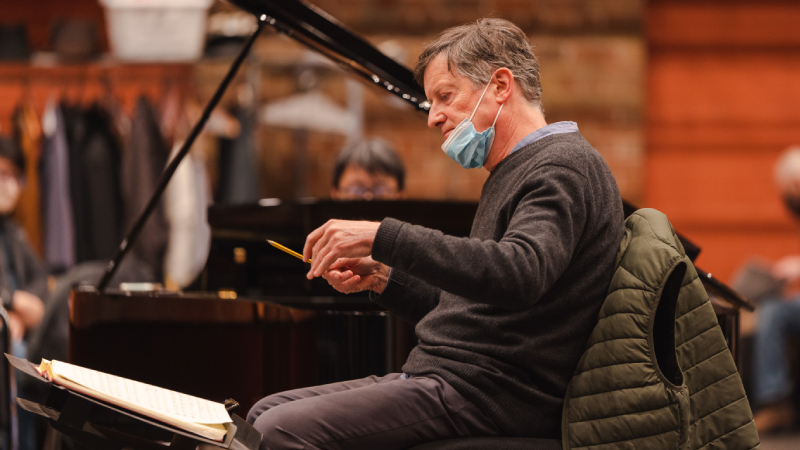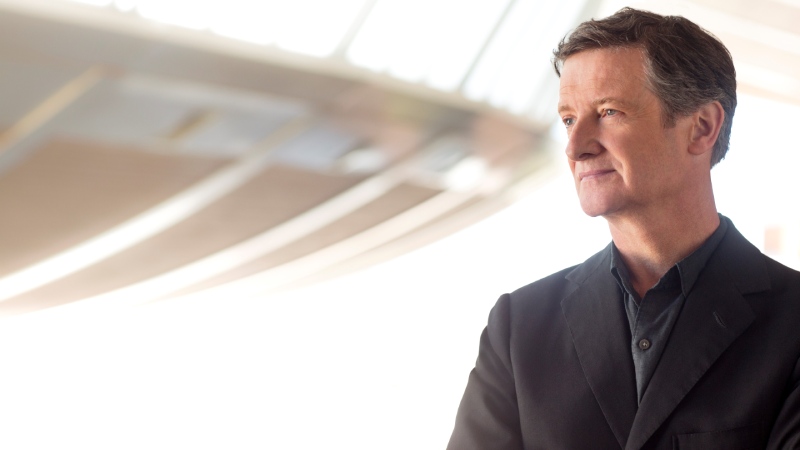Internationally renowned conductor Harry Bicket has earned distinction for his interpretations of Mozart, as well as his leadership of both traditional orchestras and early-music ensembles. He spoke with the COC about coming back to the company to conduct what may be Mozart’s most perfect—and revolutionary—comedy.
The Marriage of Figaro runs from January 27 to February 18, 2023. Get your tickets
here!
COC: How do you think about this opera within Mozart’s larger body of work? Harry Bicket: I'm kind of I'm lucky, and a little bit unusual, in that I've done a lot of Mozart repertoire that precedes
Figaro; I’ve conducted pieces like
Ascanio in Alba (1771) and
Lucio Silla (1772) which he wrote when he was still a teenager. So I see
Figaro through the prism of those early operas rather than through the prism of what came later and, in that sense, it's very interesting to appreciate just how extraordinary
Figaro was, how it broke so many rules and completely changed the landscape for opera going forward.
The most obvious things are that in early Mozart operas—and in the old-fashioned
opera seria convention that Mozart was coming out of—you have a lot of
recitative. Which is then followed by a very long aria for one person on stage, who then goes off stage and another person comes on, has a scene of
recit and sings another
aria. After which another person goes on, and so on. It was a very rigid form. Some brilliant music, but the rigidity was very hard to go beyond. And, what Mozart suddenly does in
Figaro is he completely opens up that structure—there aren’t even that many arias in
Figaro, it’s all ensembles, duets, trios, quintets, sextets. And that tells you what he achieved, and which is so amazing: this idea that you could write music where the action is pushed forward through the ensembles, the collection of individuals on stage. To me it’s the beginning of a whole genre of opera.
COC: And this new genre of opera was quite revolutionary in your perspective? Bicket: I always like to remember that three years before
Figaro was written, the American Revolutionary War was coming to its end. And three years after
Figaro was written, you had the beginning of the French Revolution.
Figaro emerges against a background of massive social upheaval, both in Europe and in the U.S. I think it's useful to consider the piece in the context of that, not just as an opera that expresses themes connected to the universal human condition, but also a piece with a historical viewpoint. It depicted material that could have got you locked up, quite literally.
And the other way it's revolutionary, musically speaking, is the fact that for the first time ever you have more than one person onstage, expressing different ideas simultaneously. In the finale, there’s people in one corner gleefully exacting revenge, and another lot in the other corner, cursing them, and someone else singing their love for somebody else. And then, of course, you've got the orchestra in the pit as well, who often tell another story entirely, or add another layer of psychological depth, illustrating what people are
really thinking beneath the words they’re saying. So you’re invited, as an audience membe,r to start considering like seven viewpoints and none of it is actually linear. It's kind of a mind-blowing concept in the history of music and serves as an important line separating what came before Figaro and what would come after.

COC: What are your favourite musical moments in Figaro? Bicket: Conducting
Figaro is always brilliant, because you've got people in the audience who are hearing it for the first time and you’ve got people hearing it for the 100th time. And it still has the power to completely transport all of them, including me.
The Act II finale is so completely miraculous. I think there’s nothing ever been written like it. I’m always amazed, every time I get through it. It is so perfect, in terms of telling the story: the wit of it, the profundity, and the virtuosity. Bear in mind, these finales are like twenty, twenty-five minutes long, they are exhausting for the orchestra to play. If you talk to the second violins after playing the Act II finale of
Figaro, I mean, most people in the theatre don't notice all the work that's going on, but my God, the effort and concentration! It’s the same thing for the cast, because it's like treading on ice the whole time. Everyone has to be together, very committed, they need to have the same intention and the same language and the same color and the same affect. And, you know, to keep the concentration going for that, and also keep the dramatic wit and technical production going, while allowing that to feel natural and fresh and spontaneous as well—that’s hard work. But it is so rewarding.
The other moment that I love is actually a very short passage, which appears in the Act IV finale: when the plot has been laid and Figaro thinks he’s about to catch Susanna and the Count in the act. The music sort of dies down and there’s an extraordinary passage with two horns—it only lasts for about 12 bars and is a kind of a moment of peace before the mayhem starts. Figaro has this analogy about Susanna as Venus going to find her Mars, and he is imagining that he’s going to catch them in this big net. And Mozart writes this music that makes time stand still. Figaro is almost regretful that he’s going to catch this woman he loves betraying him (or so he thinks), but the audience knows Figaro is wrong about Susanna’s intentions and Mozart makes it this moment of transcendental beauty.. It’s so brief, this passage, and it always really touches me.
COC: You’ve worked with the COC Orchestra plenty of times before—what is it like collaborating with these instrumentalists? Bicket: They're an incredibly flexible orchestra. And my feeling has been that they are really interested in the theatrical nature of what they do. It's not just about playing the music beautifully, or together or in tune. All that is meaningless unless there's a real sense of rhetoric and theatrical intention.
I'm a great believer that you become a musician to express your individuality. And when your actual career is spent in an orchestra, in some ways, people think that doesn't encourage individuality because it's all about doing the same thing, playing together at the same time, you know?
But to me playing in an orchestra doesn’t mean that you become an automaton or you become a cog in the machine. You can play in a group and your personality can be a part of the deal and [the COC Orchestra] has, it seems to me, that quality—where there's a lot of individual players who feel very committed as artists, and they certainly haven't left their personalities at the door when they came into the room to play together.
Harry conducts the COC Orchestra in
The Marriage of Figaro, opening January 27 and running until February 18!
Get tickets today!
Photo: Dario Acosta


